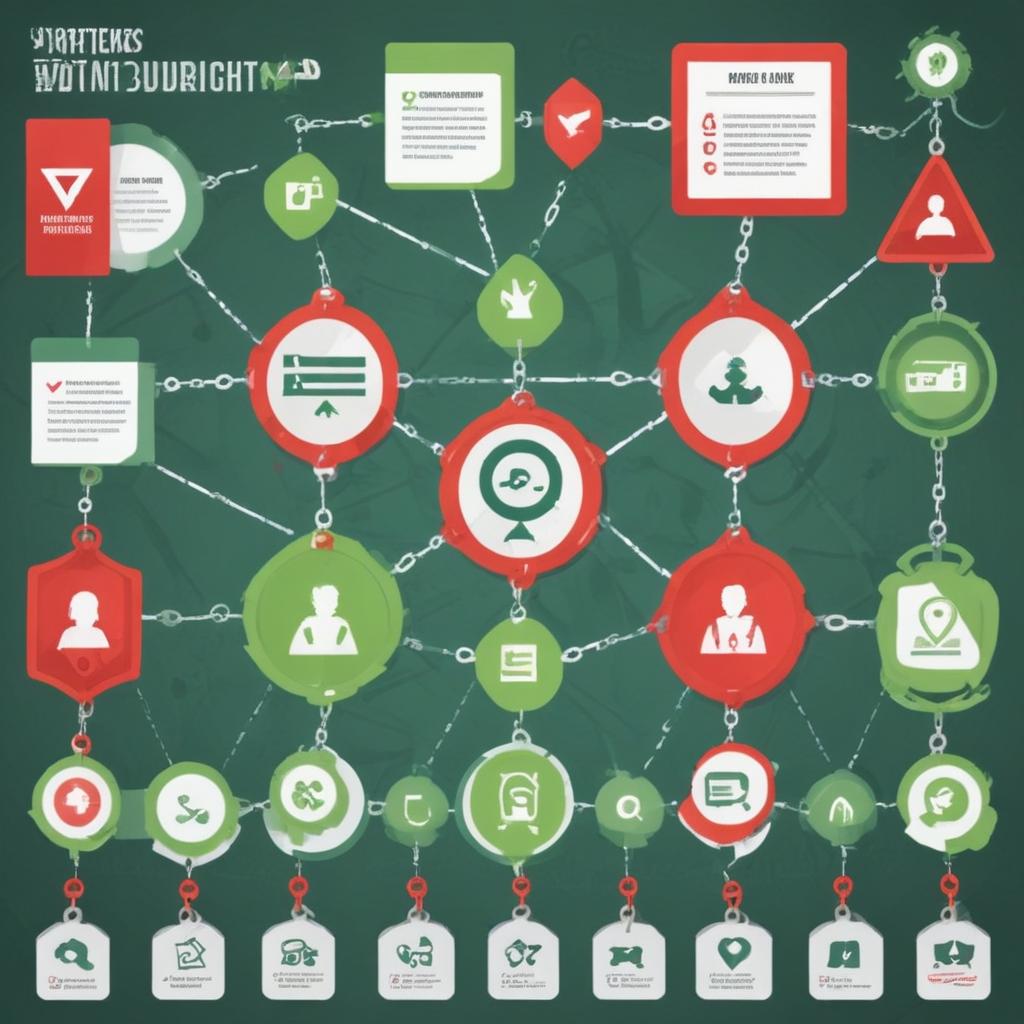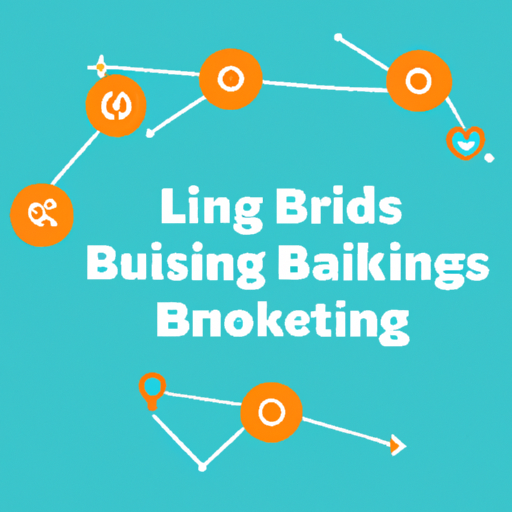Link-Building Mistakes to Avoid: Best Practices for Success
Understanding the Importance of Link Building
Link building is like assembling a digital roadmap for search engines. Each link acts as a bridge connecting different pages, guiding search engines to the content they should prioritize. In this ever-evolving landscape of SEO, effective link building can propel your website to the top of SERPs (Search Engine Results Pages).
However, not all paths lead to success. There are **common pitfalls** that many fall into when attempting to build links. In this guide, we will explore these mistakes and unveil best practices for link building success.
Common Link-Building Mistakes to Avoid
While link building is essential, many marketers make critical errors that can hamper their SEO success. Here are some of the most common mistakes:
1. Ignoring Link Quality for Quantity
In the early days of SEO, it was tempting to gather as many links as possible, regardless of their source. However, this approach has changed dramatically. Today, quality over quantity reigns supreme.
- High Authority Sites: Focus on obtaining links from reputable websites in your industry.
- Relevance Matters: Ensure the linking site is relevant to your niche for maximum impact.
When you prioritize quality links, you’ll not only gain trust from search engines but also potentially drive more targeted traffic to your site.
2. Neglecting Anchor Text Optimization
Anchor text is the visible, clickable text in a hyperlink. Using generic phrases like “click here” can weaken your SEO efforts.
- Descriptive Keywords: Use relevant keywords in your anchor text to provide context.
- Diversity is Key: Don’t rely on just one type of anchor text; vary it to avoid penalties.
By optimizing anchor text, you can significantly improve your link-building strategy while providing clear information to users and search engines about the content they are linking to.
3. Failing to Monitor and Evaluate Links
Link building doesn’t end once you secure links. Regular monitoring is vital for maintaining a healthy link profile.
- Use Tools: Platforms like Algoboost.io can help identify valuable links and opportunities.
- Check for Broken Links: Regularly audit your links for any that may lead to 404 errors.
By keeping an eye on your link profile, you can quickly identify and rectify any issues that may arise, ensuring your SEO strategy remains robust.
Best Practices for Effective Link Building
Now that we’ve highlighted the pitfalls, let’s explore best practices that will guide you toward successful link building.
1. Develop High-Quality Content
Creating compelling and informative content is the cornerstone of link building. If your content resonates with your audience, it’s more likely to be shared and linked back to.
- Resourceful Articles: Write in-depth articles that serve as resources for others.
- Visual Content: Infographics and videos tend to attract more links.
By focusing on quality content, you create a magnet for natural backlinks, driving genuine interest from your target audience.
2. Build Relationships Within Your Industry
Networking is essential in the world of link building. Establishing relationships with other bloggers, influencers, and industry experts can open doors for opportunities.
- Engage on Social Media: Share content from others and comment thoughtfully on their posts.
- Guest Blogging: Offer valuable content to other sites in exchange for a link back to your site.
When you build authentic relationships, you not only enhance your link profile but also foster a sense of community around your brand.
3. Utilize Guest Blogging Strategically
Guest blogging can be a powerful tool for gaining quality backlinks if done correctly. It establishes your authority and provides visibility in your niche.
- Choose Relevant Blogs: Guest on sites that align with your industry to reach your target audience.
- Offer Original Content: Provide unique insights that stand out from other contributors.
Strategically approaching guest blogging can create a win-win situation, bringing value to both your site and the host.
Leveraging Algoboost.io for Link Building Success
As we’ve discussed the importance of link building, let’s emphasize how **Algoboost.io** can assist you in overcoming these common SEO challenges.
One of the standout features of Algoboost.io is its ability to analyze your current link profile and provide actionable insights to optimize it. Here’s how Algoboost.io can enhance your link-building efforts:
1. Comprehensive Link Analysis
Algoboost.io offers detailed reports on your existing backlinks, highlighting their quality and relevance. By identifying which links are beneficial and which ones could be hurting your SEO efforts, you can make informed decisions to improve your link profile.
2. Competitor Link Analysis
Understanding your competitors’ link-building strategies can provide valuable insights. Algoboost.io allows you to analyze the backlinks of your competitors, giving you direction on potential sites to target for your own link-building efforts.
3. Discovering New Opportunities
With Algoboost.io’s tools, you can unearth potential link-building opportunities that you may not have considered. Whether it’s finding blogs open to guest contributions, identifying relevant directories, or spotting industry influencers, Algoboost.io can expand your reach and effectiveness.
4. Monitoring and Reporting
The journey doesn’t end once you secure links. Algoboost.io allows you to continuously monitor your link profile and receive reports on new links gained, lost links, and overall link health. This monitoring ensures you remain proactive in your link-building efforts.
Emphasizing Broader SEO Insights
While link building is a key component of SEO, it’s important to consider it in conjunction with other strategies. Here are additional insights to enhance your overall SEO approach:
1. On-Page Optimization
Ensure your internal linking structure is solid. Effective on-page SEO, including optimizing title tags, meta descriptions, and headings, is essential for making the most of the links you build.
- Keyword Placement: Naturally integrate keywords in content, and use them in internal links.
- Content Structure: Break up your content with headers and lists for better readability.
When you integrate strong on-page optimization with your link-building efforts, you create a cohesive SEO strategy.
2. Data-Driven Decision Making
Utilizing analytics tools to track your website’s performance can provide invaluable insights into your SEO strategy’s effectiveness. The data can help refine your link-building tactics.
- Google Analytics: Monitor traffic sources and user behavior to gauge link effectiveness.
- Conversion Tracking: Assess which links drive the most conversions and optimize accordingly.
A data-driven approach allows you to pivot your strategy based on real performance metrics.
3. Stay Updated on SEO Trends
SEO is an ever-evolving field. Keeping abreast of the latest trends and algorithm updates is vital for maintaining your ranking.
- Follow Industry Leaders: Subscribe to blogs and forums to stay informed.
- Adapt Strategies: Be ready to change tactics as search engines evolve.
Continuous learning and adjustment will keep your link-building efforts relevant and effective.
Conclusion
Link building is an integral part of an effective SEO strategy, but it requires careful thought and execution. By avoiding common mistakes and embracing best practices, you can pave the way for successful link acquisition that truly enhances your site’s visibility.
With the assistance of **Algoboost.io**, you can navigate the complexities of link building confidently. This innovative platform provides the tools and insights needed to optimize your link profile, paving the way for improved SEO results.
Take control of your SEO journey today! Try Algoboost.io and watch your search rankings soar as you build a robust link profile that stands the test of time.





